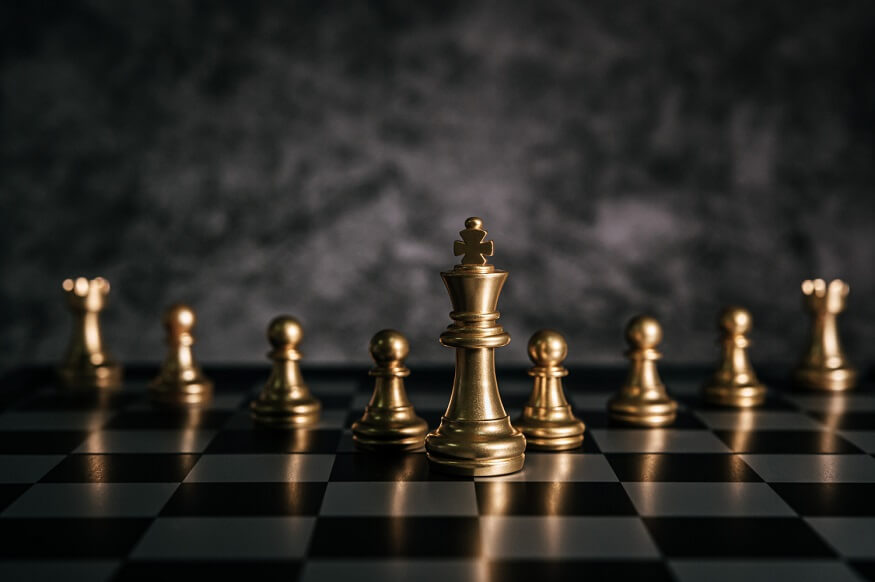World Chess Day is celebrated every year on July 20. The date was chosen as the International Chess Federation (FIDE) was founded in 1924 on July 20. Since 1966, this day has been recognised as the International Chess Day by the United Nations Educational, Scientific, and Cultural Organisation (UNESCO). Here are 20 chess-related facts you might find fascinating.
Also Read: 5 Concentration Activities to Improve Your Kid’s Focus Level
Chess facts
Origins: Chess is believed to have originated in India, during the Gupta Empire (around the 6th century). The game was known as “chaturanga,” which translates to “four divisions of the military” – infantry, cavalry, elephants, and chariotry, represented by the pieces pawn, knight, bishop, and rook respectively.
Transition: Around the 15th century, the game underwent significant changes in Europe. The rules were modified to how they stand today, and the queen became the most powerful piece.
En Passant: The special pawn capture move, “en passant,” can be roughly translated from French to mean “in passing”.
Castling: This is the only move that allows two pieces, the king and a rook, to move at the same time. It’s also the only move that can involve a player moving their king twice.
Stalemate: This is a situation where one player cannot make any legal moves but is not in check. The game is declared a draw in such a situation.
First Chessboard with Alternating Light and Dark Squares: The first chessboard of this type appeared in Europe in 1090.
Longest Possible Game: The longest possible game of chess can extend to 5,949 moves!
“Checkmate“: The term “checkmate” originates from the Persian phrase “Shah Mat,” which means “the King is dead.”
Computers and Chess: The first computer program built to play chess was developed by Alex Bernstein in 1957. In 1997, a computer (IBM’s Deep Blue) beat a reigning World Champion (Garry Kasparov) for the first time.
Number of Possible Games: There are more possible iterations of a game of chess than there are atoms in the known universe.
Queen’s Gambit: Despite its popularity in recent years, especially due to the Netflix series, the Queen’s Gambit is an old chess opening. It’s been analysed in texts dating back to the 1490s!
Pawn Promotion: If a pawn reaches its eighth rank, it can be promoted. While most players choose to promote their pawn to a queen, it can become any other chess piece (a process known as underpromotion).
Chess in Space: The first chess game played in space was in June 1970 by the Soyez-9 crew.
Young Grandmasters: The youngest ever to earn the title of Chess Grandmaster was Sergey Karjakin of Ukraine at age 12.
Foldable Chess Board: The modern chessboard is typically foldable, a design feature invented by a priest who wished to carry the game inconspicuously.
Simultaneous Games: Grandmaster George Koltanowski holds the record for playing the most games of chess simultaneously while blindfolded, with 34 games in 1960.
Different Names: The rook is also sometimes called a castle, and the bishop can be called a “runner” in some languages.
World Chess Federation: The World Chess Federation, Fédération Internationale des Échecs (FIDE), was founded in 1924.
Most Expensive Chess Set: The most expensive chess set ever sold at auction was the 1972 “J. Paul Getty” Chess Set by artist Piero Benzoni, which sold for $1.3 million.
International Chess Day: July 20th is recognised by the United Nations as International Chess Day.
Also Read: World Chess Day: 20 Interesting facts about chess
Why is Playing Chess Fun?
Chess is a two-player, abstract strategy board game. It is believed to have originated in India, during the Gupta Empire (around the 6th century), and from there it spread to the Persian Sassanid Empire, and subsequently to the Islamic world, then Europe and eventually the rest of the world. The objective of the game is to checkmate the opponent’s king, meaning the king is in a position to be captured (in “check”) and there is no way to move the king out of capture (mate). The game can also end by resignation, if a player concedes defeat.
Chess is fun for a number of reasons:
Mental Workout: Chess provides a strong mental workout, enhancing cognitive abilities such as problem-solving, memory, and concentration. It can be very satisfying to solve complex chess problems.
Strategic Thinking: Chess is a game of strategy and tactics. Each player tries to outwit their opponent, which can be both challenging and fun. There’s a thrill in setting up a successful attack or in turning the tables when you’re in a defensive position.
Competition: Whether you are playing in a formal tournament or a friendly game, the competitive aspect of chess can be very exciting.
Variety: Each game of chess is different, which keeps the game fresh and engaging. With billions of possible positions after just a few moves, you’ll never play the same game twice.
Skill Levels: Chess can be enjoyed by players of all skill levels. Beginners can have fun learning the game and improving, while advanced players can enjoy the complexity and depth of high-level play.
Universal: Chess is a universal game, played and enjoyed by people all around the world. It can be a great way to connect with different people, cultures, and ages.
Accessible and Affordable: Chess is easy to learn, can be played virtually anywhere, and does not require expensive equipment.
Longevity: Chess is a game that can be played throughout a person’s life. It’s a fun pastime, but also a great way to keep the mind sharp as we age.
Culture and History: The game has a rich history and has been played by historical figures throughout centuries. By playing chess, you are participating in that history.
Also Read: The Benefits of Playing Board Games with Family
In summary, playing chess is fun because it is a mentally stimulating and challenging game, filled with endless possibilities and opportunities for lifelong learning and enjoyment. Euroschool believes that chess is a valuable tool for developing these skills, and we are committed to encouraging students to play chess.









